In the week ending May 25, Western Canadian feeder cattle markets were trading $4 to $8 higher compared to seven days earlier. Some higher quality genetic packages of 700-pound plus cattle were up as much as $10 from week-ago levels.
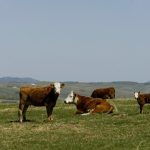
Klassen: Demand for grass cattle pushes feeder market higher

Eastern Canada’s largest beef processor on strike
Union says a Cargill plant in Calgary could soon take similar action
Nearly 1000 workers at Cargill’s beef processing plant in Guelph hit the picket lines this morning, as workers strike in an effort to gain better compensation.
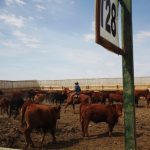
U.S. livestock: Live cattle mixed, feeder cattle lower ahead of holiday weekend
Chicago Mercantile Exchange live cattle futures ended mixed on Friday, amid growing uncertainty over packer interest after the U.S. Memorial Day holiday weekend, traders said.
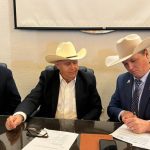
Canada, Mexico, U.S. and Australian cattle groups signal support for integrated beef market
The memo of understanding, signed at trilateral meetings in Mexico last week, calls on their respective governments to invest in infrastructure and plans to protect the industry from outbreaks of foreign animal disease. It asks governments to promote livestock production as "an effect tool in land and resource management."

Bird flu detected in tissue samples of US dairy cow sent to slaughter, USDA says
Bird flu virus particles were found in tissue samples taken from one dairy cow sent to slaughter at a U.S. meat processing plant, but none were detected in samples from 95 other cattle, the U.S. Department of Agriculture (USDA) said on Friday.

Digital medicine promises better vet access
VETSon provides veterinary clinics with option to provide remote service
Reading Time: 2 minutes VETSon hopes that by bringing veterinary practices more digital, they might lessen the burden on those practices and make services available to more farmers. Their artificial intelligence-powered virtual healthcare platform, launched by father-son team Glen and Colin Yates, is designed to let veterinarians service more clients and give more animal owners access to care.
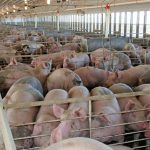
U.S. livestock: Lean hogs hit three-month low on weaker cash prices
Chicago Mercantile Exchange lean hog futures slumped to a February low on Thursday under pressure from solid U.S. production and weaker cash prices, traders said.

New program focuses on data literacy for cow-calf producers
Case studies and mentoring will help give farm data decision-making power
The Data Literacy for Cow-Calf Producers project aims to give farmers and ranchers the chance to discuss best practices and learn from experts and peers about how to use data to make better business decisions.
Data management has varied adoption in the cow-calf sector.

Sustainability demands pressure livestock feed industry
Farmers and the animal nutrition industry need to understand that feeding livestock today requires thinking about what comes out of an animal as much as what goes in, according to many at the Animal Nutrition Conference of Canada.
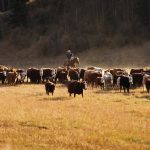
U.S. livestock: Cattle futures continue to rally, lean hogs weaken
Chicago Mercantile Exchange live and feeder cattle futures rallied on Wednesday amid expectations of strength in the cash markets, while lean hog futures faced continued pressure from data showing that U.S. packers are processing a glut of pork, analysts said.

